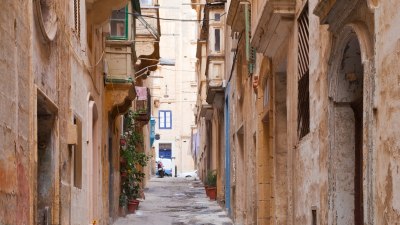Currency, Crafting, and Cafés Abroad
Explore how currency influences crafting and café culture around the world.

Image created with Flux Schnell
Traveling abroad offers a unique blend of experiences, particularly when it comes to understanding the local currency, engaging in crafting activities, and enjoying the vibrant café culture. This article delves into these three interconnected aspects, showcasing how they shape our interactions in various countries.
The Importance of Currency in Travel
Currencies are the backbone of every economy, influencing not only the prices of goods and services but also the culture and lifestyle of a country. Understanding local currency is essential for travelers who want to engage meaningfully in their destination. Each country has its currency, ranging from the Euro and the U.S. Dollar to more unique ones like the Bhutanese Ngultrum or the Uzbek Som. Familiarizing oneself with the local currency helps travelers avoid confusion and allows them to budget more effectively.
One of the first steps upon arriving in a new country is to get comfortable with the local currency. Knowing the exchange rates and the purchasing power of your currency can enhance your travel experience. Many travelers prefer to exchange money at local banks or authorized exchange houses rather than at airports to avoid inflated fees. Moreover, utilizing credit or debit cards can be beneficial, but it’s crucial to check with your bank regarding any foreign transaction fees. Remember to notify your bank of your travel plans to avoid any inconvenience related to international payments.
Cultural Insights through Currency
Currency often holds cultural significance, reflecting the country's history and values. For instance, Euro banknotes feature architectural styles from various periods in European history, while the British Pound coins feature iconic figures and symbols from the UK. Examining the symbols on money can provide travelers with insights into the values and priorities of the society. This cultural exploration can extend beyond just observing the currency; it allows for immersive experiences, such as visiting local markets or shops where travelers can see their currency in action and appreciate the artistry involved.
In many countries, the act of bargaining is part of the purchasing culture. Learning how to negotiate prices in local markets, while being respectful and courteous, can enhance the travel experience and lead to authentic interactions with locals. Understanding the local currency and its significance can help travelers engage more deeply with their surroundings and develop a greater appreciation for the local culture.
Crafting as a Cultural Expression
Crafting plays an important role in many cultures around the world, serving as a creative outlet that reflects local traditions, skills, and artistry. Every country boasts its own unique forms of crafting, whether it be pottery, weaving, woodworking, or hand-painting. Engaging in crafting activities abroad can provide tourists with a hands-on way to connect with the culture and history of a place.
Many travelers seek opportunities to participate in workshops or classes that teach local crafting techniques. For example, in Kyoto, Japan, travelers can learn the traditional art of flower arranging (Ikebana) or pottery-making, gaining insights into Japanese aesthetics and philosophy. In Morocco, travelers can delve into the art of carpet-making, where intricate patterns tell stories of local tribes and traditions. Such experiences not only contribute to skill development but also deepen one's understanding of the cultural context.
Crafting also plays a significant role in sustainable tourism. Many artisans create handmade goods using environmentally friendly materials, preserving traditional techniques that have been passed down through generations. By supporting these artisans, travelers contribute to the local economy and promote the preservation of cultural heritage. Craft markets and fairs often showcase these crafts, allowing travelers to purchase unique souvenirs while supporting the local craftsmanship.
The Café Culture Around the World
Cafés are not just places to grab a quick caffeine fix; they often serve as social hubs where people gather to connect, share stories, and experience local culture. The café culture differs from one country to another, influenced by local customs, social norms, and gastronomic habits. From the bustling coffee houses of Vienna to the serene tea shops in Kyoto, cafés embody the essence of social interaction and offer travelers a glimpse into daily life.
In Europe, for instance, cafés are known for their relaxed atmosphere, encouraging patrons to linger and enjoy their drinks while engaging in conversation or studying. Viennese coffeehouses, recognized by UNESCO as Intangible Cultural Heritage, provide a place for artists, writers, and intellectuals to come together. The rich aroma of coffee, combined with the ambiance of live music or literature readings, enhances the café experience, creating a sense of community.
In contrast, cafés in places like Istanbul often blend traditional elements with modern influences. Turkish cafés serve strong coffee alongside sweet treats, providing a space for social interaction. The tradition of Turkish coffee, recognized by UNESCO, emphasizes hospitality and fellowship, and enjoying a cup often involves sharing conversations and warmth with others.
Integrating Currency, Crafting, and Cafés
The interplay between currency, crafting, and cafés enriches the travel experience, creating layers of interaction that enhance one's journey. For instance, exploring local markets where crafts are sold often leads travelers to nearby cafés, where they can rest and reflect on their purchases while soaking in the ambiance. Engaging with artisans offers insights into their processes, and the café environment provides a platform for engaging in conversations about craftsmanship and its significance.
In many destinations, taking a pause at a café allows visitors to interact with locals who share stories about their crafts, deepening the connection between currency and culture. By patronizing local cafés, travelers not only enjoy quality beverages but also contribute to the community, investing in the lives of those who shape the cultural landscape. This creates a cycle of support, where tourism dollars go towards preserving local traditions and fostering a sense of identity for communities.
Practical Tips for Travelers
For travelers eager to experience the intertwining themes of currency, crafting, and cafés abroad, here are some practical tips to enhance the journey:
- Research Local Currency: Familiarize yourself with the local currency and its exchange rates before you travel. Use currency converter apps for easy calculations.
- Support Local Artisans: Seek out crafting workshops and local markets to purchase handmade goods. Supporting artisans directly enriches your travel experience.
- Explore Cafés: Don’t overlook local cafés; they can provide a unique cultural experience. Try local specialties and engage with locals to learn more about the culture.
- Practice Cultural Sensitivity: Respect local customs and traditions, especially in crafting and social settings like cafés. Understand how different cultures approach social interactions.
- Document Your Experiences: Keep a journal or blog about your crafting experiences and café visits, creating lasting memories to cherish long after your travels.
The interconnection of currency, crafting, and cafés abroad reveals the intricate tapestry of global cultures. As travelers explore new destinations, understanding the importance of currency enriches their experiences, while engaging with local crafts provides insight into traditions and artistry. Moreover, appreciating café culture offers a window into the social fabric of communities, fostering connections with locals and fellow travelers alike. Embracing these elements fully can lead to a more profound, meaningful travel journey that celebrates both individuality and shared humanity.











